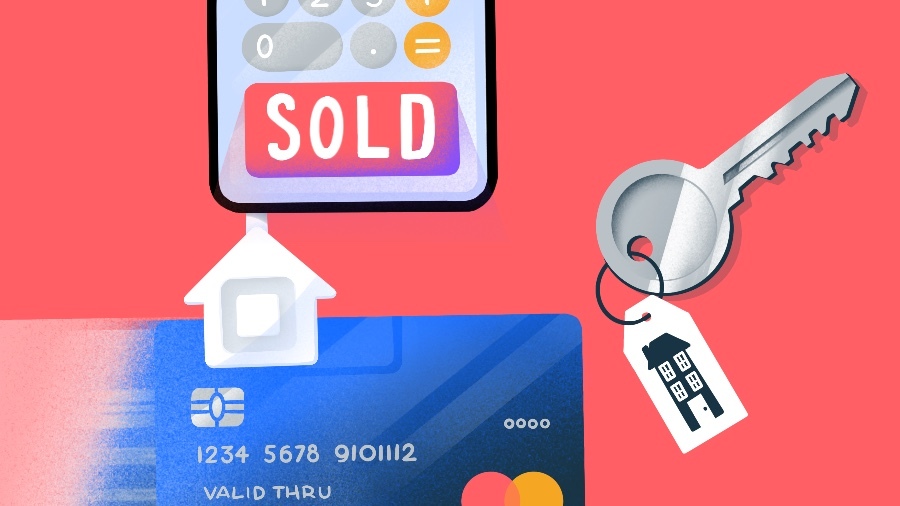The residential real estate market is booming, and startups in the space are seeing billions in investment as many potential buyers look for new ways to purchase homes.
Subscribe to the Crunchbase Daily
Despite a pandemic and economic downturn, the majority of real estate startup Doorvest’s customers are buying real estate for the first time, according to CEO Andrew Luong. The startup identifies and buys an investment property on customers’ behalf before renovating it and renting it out for a monthly management fee.
Luong said users are drawn to the Doorvest platform as real estate buying has become digital and because “real estate has historically been perceived as a reliable asset class.”
After the stock market tanked in March 2020, the Federal Reserve lowered interest rates, making homeownership more affordable. To some, “historically reliable” asset classes became more attractive, according to Luong, which is why he believes some people have turned to residential real estate as an investment.
The stock market rebounded in April, but real estate investment remained hot, with existing home sales reaching a 14-year high in 2020, according to the National Association of Realtors. Low interest rates and the shift to a work-from-home environment for many white-collar workers made it an opportune time for those interested in buying a home to take the leap.
So far this year, venture-backed startups in the real estate and real estate investment space have raised more than $962 million in funding globally, according to preliminary Crunchbase data. Since March 2020, the sectors have raised more than $8.7 billion in funding globally.
Companies in the sector that have recently raised funding include:
- Most recent round: $110 million Series C
- Total Funding: $290 million
- Investors: Tiger Global Management, Andreessen Horowitz, Caffeinated Capital
- Problem it’s trying to solve: Facilitating rent-to-own home purchases
Doorvest
- Most recent round: $2.5 million seed
- Total Funding: $3.6 million
- Investors: Mucker Capital
- Problem it’s trying to solve: Assisting customers with buying and managing investment properties.
- Most recent round: $1 million seed
- Total Funding: $1.1 million
- Investors: Pragmatech Ventures, Techstars Austin Accelerator
- Problem it’s trying to solve: Helping prospective buyers find and buy new construction homes.
“We have a huge boom in demand for single-family residential right now, a lot of that being driven by COVID and people just wanting to have more space or their own space,” Heather Widman, a principal at Building Ventures, said in an interview. “Because perhaps they’ve been unsatisfied with their condo or their apartment and that experience wasn’t satisfactory.”
Widman has also observed an increase in single-family homes built to rent out to tenants because many people can’t afford to buy a home, and there’s a “massive lack” of affordable housing in the United States.
Real estate platform Zillow’s home value index has increased 9.1 percent year over year, the fastest pace of appreciation since the Great Recession more than a decade ago, according to the company’s January 2021 Market Report. The median home sale in mid-January became pending in 18 days, compared to around 46 days in January 2020 and January 2019, according to Zillow. Translation: homes are flying off the market at a faster pace than before, and are getting more expensive in order to keep up with demand.
The real estate market is different than back in 2006, before the housing bubble burst, in several ways, according to Brad Berning, Zillow’s vice president of investor relations. For one, buyers are generally in a better financial position now. Underwriting is also healthier, he said.
Further fueling the homebuying boom: Millennials are approaching their peak home buying years and starting to have children. And with the movement of offline-to-online, tech has enabled purchases to move faster.
The new models for financing and buying homes is likely a result of millennials entering the housing market and being more comfortable with buying or making offers on homes online without having seen them in person, agreed Ed Walters, vice president of business development and real estate at Mosaic and a former partner at real estate-focused investment firm Tamarisc Ventures.
“You don’t buy many homes in your entire life,” Walters said. “And when you engage in the process, buying and selling homes is a nightmare.”
That outdated process has made millennials more open to taking matters into their own hands with “ibuying” tools like Opendoor, which recently went public via a special purpose acquisition company. It also helps that they are “more willing to pay for things without touching them,” Walters said.
“I don’t think right now homeownership and flexibility go hand in hand,” Walter said. “But I think there are more models now that hint at that.”
The pandemic has accelerated trends in real estate, particularly digital buying, according to Luong, who pointed out that in mid-March 2020, no one would enter a stranger’s home, which forced homeseekers to turn to digital buying.
“I do think COVID accelerated all of the trends in real estate, especially the digital trend,” Luong said.
The surge in homebuying has led to low inventory on the market and properties selling more quickly, according to the National Association of Realtors. The median days on the market for a home for the four weeks ending on Feb. 14 was 27 days, compared to 49 days at the same time last year.
“I definitely think we will see more investment in this space and more startups innovating in this space because the product just isn’t good enough today and the experience isn’t good enough today and COVID is trapping us in our homes,” Widman said.
Illustration: Dom Guzman

Stay up to date with recent funding rounds, acquisitions, and more with the Crunchbase Daily.




![Illustration of stopwatch - AI [Dom Guzman]](https://news.crunchbase.com/wp-content/uploads/Halftime-AI-1-300x168.jpg)




67.1K Followers